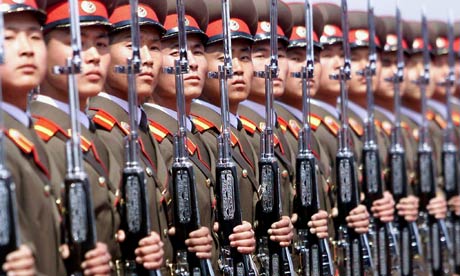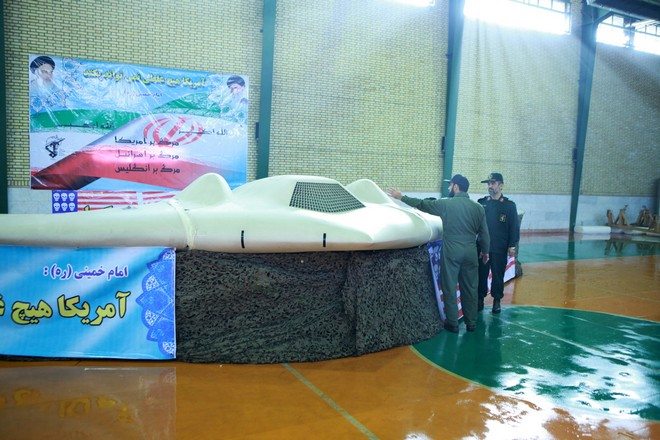North Korea’s military Monday threatened “special actions” soon to turn parts of the South Korean capital to ashes, accusing Seoul’s conservative government of defaming its leadership.
The North has for months been criticising the South’s President Lee Myung-Bak in extreme terms and threatening “sacred war” over perceived insults.
There have been no incidents but the language has become increasingly vitriolic. Some analysts said they believe a military provocation is likely.
“The special actions of our revolutionary armed forces will start soon to meet the reckless challenge of the group of traitors,” said a statement on the official news agency.
The North said its targets are “the Lee Myung-Bak group of traitors, the arch criminals, and the group of rat-like elements including conservative media destroying the mainstay of the fair public opinion”.
It said the actions “will reduce all… to ashes in three or four minutes… by unprecedented peculiar means and methods of our own style”.
Tens of thousands rallied in Pyongyang last Friday, screaming hatred for Lee and calling for his death over alleged insults.
Last week the nuclear-armed North accused Lee of “desecrating” mass celebrations marking the 100th anniversary on April 15 of the birth of Pyongyang’s founding president Kim Il-Sung.
It bridled at anti-Pyongyang demonstrations in Seoul and at comments by Lee and conservative media. These questioned the cost of the anniversary celebrations for a nation suffering acute food shortages.
Lee said the estimated $850 million cost of a rocket launch intended to mark the anniversary could have bought 2.5 million tonnes of corn.
The launch, purportedly to put a satellite into orbit, was to have been a centrepiece of the celebrations. The rocket disintegrated after some two minutes in what was seen as an embarrassment for the regime.
Monday’s statement castigated Lee for comments last Friday, which urged the North’s new leader Kim Jong-Un to reform agriculture and improve human rights.
It also took issue with the South’s unveiling of a new cruise missile said to be able to reach any target in the North.
The North attributed its statement to the “special operation action group” of the military supreme command. Military officials in Seoul said they had no knowledge of such a unit, and no particular military movements had been detected in the North.
One analyst said the North, unlike in the past, may well follow up its threats now that major anniversary events are over.
“The easiest option will be cyber terror… but we may have to guard against actual terrorist actions,” Cheong Seong-Chang of South Korea’s Sejong Institute think-tank, told AFP.
“This time, I think there’s a high possibility that the North’s words, unlike in the past, will actually lead to specific actions.”
Baek Seung-Joo, of the South’s Korea Institute for Defence Analyses, said there had been “bad signs” across the border but did not elaborate.
“I’m worried about military provocations by North Korea,” Baek told AFP.











